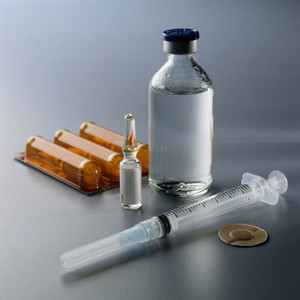Teva Pharmaceutical Industries has grown rapidly since the forerunner of today’s firm was born in 1976. It has achieved its vision of becoming the world’s number one generics manufacturer, or as it puts it ‘its commitment to providing consumers with access to high-quality, affordable medicines’. It takes a great many legal wrangles and much forward planning to maintain this position.
Teva – a moving target
Home/Pharma News
|
Posted 15/04/2011
 0
Post your comment
0
Post your comment

One of Teva’s strategies is to acquire 180-day marketing exclusivity for the US market when original drugs lose their patent protection. First off the mark, it approaches the originator company years in advance to stitch up a deal. The application has then to be approved by the FDA and naturally other generics companies are more than peeved when they repeatedly lose the race. Legal action is currently being taken over Teva’s planned generic versions of Cozaar and Hyzaar (Merck), Actos and Actoplus Met (Takeda), Lovenox (sanofi-aventis), Gemzar (Eli Lilly), and this is just a snapshot of cases being battled in the courts.
For example, in December 2010 Teva called on the Supreme Court not to allow a case challenging how the company was awarded marketing exclusivity on Merck’s hypertension drugs Cozaar and Hyzaar. The case, which generic drugmaker Apotex asked the court to hear earlier that year, centres on a dispute over what actions can lead a generic manufacturer to lose its initial 180-day marketing exclusivity for a product.
In the case of Lovenox, the FDA dealt Teva a setback in February 2011 in its effort to win approval of a generic version of the blood thinner, telling the company it needs more information before it can approve its application. Another firm, Amphastar Pharmaceuticals, is simultaneously trying to force the agency to approve its Abbreviated New Drug Application (ANDA) for a generic version, which the company says has been unfairly delayed. Amphastar, which claims it was the first company to have filed an ANDA for generic enoxaparin sodium, argues that the FDA has continually denied its application without proper justification. ‘Amphastar has repeatedly met the standards set by the FDA, only to see them shift or have new standards arbitrarily and capriciously created,’ Amphastar says in its complaint.
Sometimes the boot is on the other foot. Teva is trying to keep patent protection for its multiple sclerosis treatment Copaxone, saying that any future generic versions of Copaxone should require full clinical trials before being approved.
Recent acquisitions and partnerships
Meanwhile acquisitions proceed apace. In January 2011 the Israel-based company acquired US$3.95 million (Euros 2.87 million) of Rexahn stock in a private offering. Teva has now taken a 6.29% stake in the company, which is in the process of developing drugs to treat cancer and central nervous system disorders.
A short while later Teva and APP Pharmaceuticals (a company of Fresenius Kabi Group) together launched a generic version of gemcitabine used to treat non-small cell lung cancer, pancreatic cancer, metastatic breast cancer, and ovarian cancer. Under an agreement signed by the two companies, APP will manufacture gemcitabine HCI for injection and will receive a license from Teva to market the product within Teva’s 180-day exclusivity. In return, Teva will receive a royalty during the manufacturing term.
Next, Teva announced the acquisition of Corporación Infarmasa SA, a top-10 pharmaceutical company in Peru, from the Rohatyn Group and Altra Investments. Financial terms were not disclosed. Infarmasa manufactures and commercialises branded and unbranded generic drugs, primarily corticosteroids, antihistamines, analgesics and antibiotics.
Related articles
Teva again files citizen petition against generic Copaxone
Teva increases stake in Mediwound to 51%
Profits for generics’ giant Teva soar
FDA grants approval for generic lansoprazole
FDA generics division officer joins Teva
Delays in FDA approval of biosimilar G-CSF (filgrastim)
Source: Pharmaceutical-technology, Pharmaletter, Teva
Guidelines
US guidance to remove biosimilar comparative efficacy studies
New guidance for biologicals in Pakistan and Hong Kong’s independent drug regulatory authority
Policies & Legislation
WHO to remove animal tests and establish 17 reference standards for biologicals
Formycon signs new aflibercept biosimilar pacts and launches ranivisio in Europe

Home/Pharma News Posted 13/11/2025
Bio-Thera and Stada expand biosimilars alliance to include tocilizumab

Home/Pharma News Posted 20/10/2025
The best selling biotechnology drugs of 2008: the next biosimilars targets








Post your comment